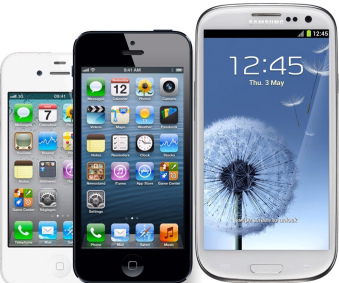Windows 8, by trying to be like iOS and Android and providing a simplified “one app at a time” interface (or more precisely 1.3 apps at a time) means that Windows is no longer good at what Windows was always good at. I already have a tablet, and I reach for my Windows laptop when I need to do something my iPad can't. That inevitably means I head straight to the desktop. This is why Windows has failed to reinvigorate the PC market, Windows no longer offers a great desktop experience or a mature tablet experience. I'm sure it will get better, and really hope we see Office for Metro sometime soon.
Category: Tech
o2 Aims to Make Your SMS Allowance Relevant Again With New App
Tu Go is a a great idea. It can turn your iPod, iPad, laptop, or Android Tablet into a phone. Call people as if you’re calling from your mobile, and have up to 5 devices ring when you receive a call, send and receive SMS messages and see a list of voicemails.
Unlike Skype, there’s no ‘free’ calls if you call someone else using the app, all calls are charged as if you made them on your phone, as are messages.
To me this is less of a challenge to Skype, but might have more of an impact on people using iMessage, BBM or Google Talk for messaging across their devices. Now instead of being locked into your device operating system vendor’s ecosystem (iOS, Android, Blackberry), you can be locked into your network operators (albeit far more interoperable) system instead. This is a nice idea, since SMS messages sent from this app can still be receive by someone with an old phone. I do like iMessage, the typing indicator is particularly useful for knowing whether to keep you phone out because you can see the other person is about to respond but I am seriously considering switching to this since my contract gives me unlimited SMS anyway.
It remains to be seen how this app will affect battery life. On iOS at least, VOIP apps get launched on system boot and can poll their sever a minimum of every10 minutes. On Android anything goes with regards to background activity. Of course users without a cellular network connection (most iPads sold) will only be able to receive calls when they’re in a WiFi area. If it had a big impact, I probably wouldn’t use it.
What this does blur the line between what a phone is, and what a tablet is. How long before we just buy a device with a 3G/4G connection, and download our favourite VOIP app for making calls with? With a Bluetooth headset, could the iPad mini be your next phone?
Size doesn’t matter, it’s what you do with it that counts
